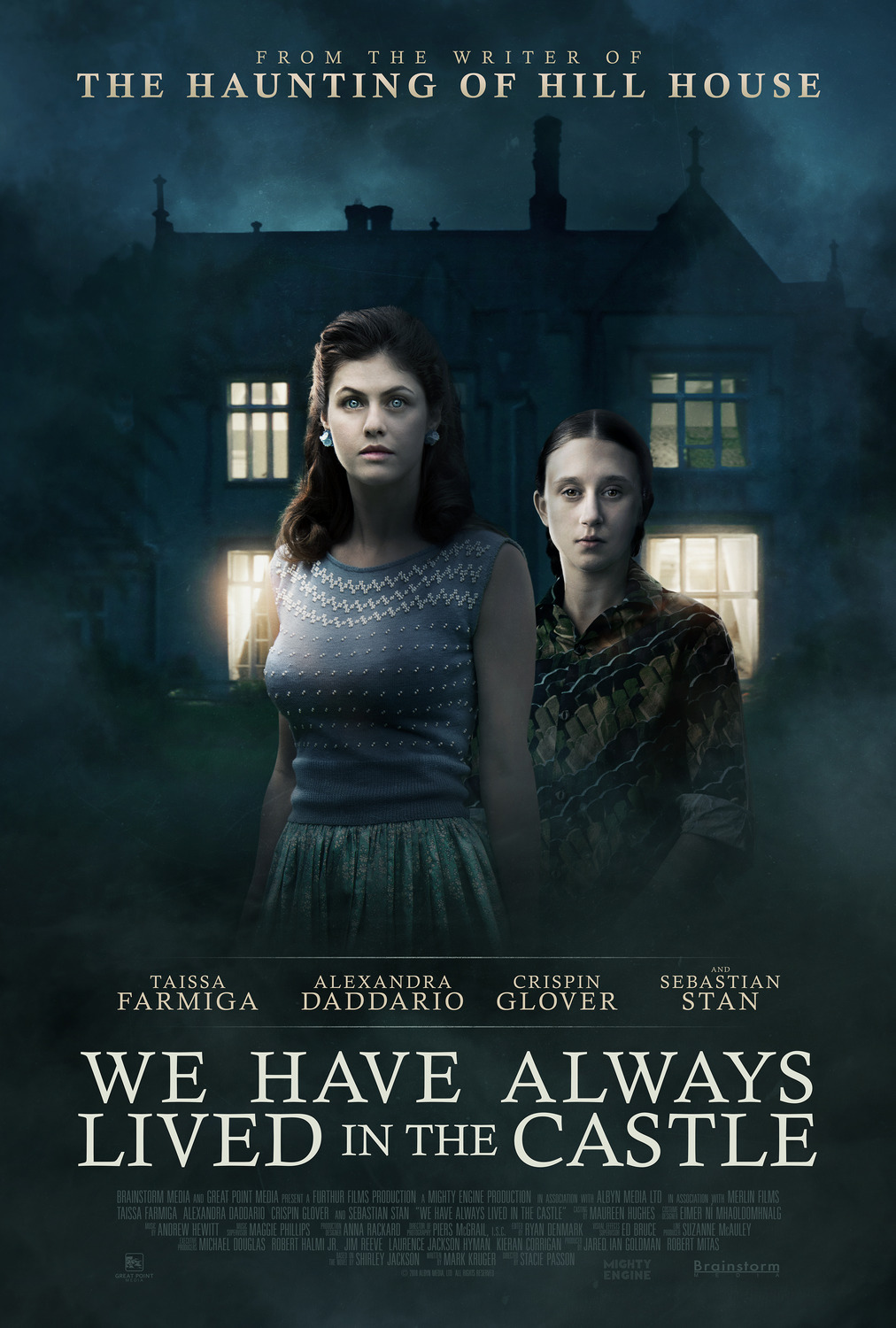There was once a time that We Have Always Lived in the Castle would have been considered a horror film, a gothic tale of suspense and darkness that fueled nightmares in the mind of many a youngster during the wee hours. Nowadays, though, in a time when “horror” means constant, hollow jump scares and mindless gore, films like Castle are largely ignored and swept aside as a genre-less lost soul. It’s a shame, really, considering how deliciously creepy and unnerving Castle is without ever getting any more violent than, say, Miss Peregrine’s Home for Peculiar Children… and, frankly, not even that much.
Based on Shirley Jackson’s classic 1962 novel, Castle stars Alexandra Daddario and Taissa Farmiga as the young Blackwood sisters Constance and Merricat (Mary Catherine), who keep to themselves in a mansion on the hill in a small Vermont village. Mystery has surrounded the sisters ever since their parents were fatally poisoned six years earlier; Constance stood accused of the crime but was later acquitted. The pair have shut themselves off from the accusing glances of the townsfolk entirely, with the exception of Merricat’s weekly trips to the general store for groceries—visits which are fraught with accusations of witchcraft and cries for her to skedaddle back home.
Living with the girls is their oddball Uncle Julian (Crispin Glover), who was also a victim of the poisoning and is now chronicling the family’s history from his wheelchair. The trio is soon joined by visiting cousin Charles (Sebastian Stan), a city-slicker whose intentions are quickly revealed to be anything but aboveboard; the women are sitting on a hefty family fortune, and he wants in.
Things escalate quickly (naturally), giving veteran TV director Stacie Passon (House of Cards, American Gods) plenty of opportunities to let herself loose. The creepy undercurrent that had been bubbling below the surface is set free with fury and will abandon, as the destruction teased in the film’s prologue is visualized. All at once Castle goes from a quirky and mesmerizing suspense film to gripping pseudo-terror, and Passon deftly melds the two.
Screenwriter Mark Kruger (TV’s Salvation) faithfully adapts Jackson’s novel, taking care to maintain all the salient plot points while also leaving his own stamp on it, but it’s the performances, though, particularly from the two leads, that make Castle worthwhile. Farmiga gives Merricat a slouch and a feeling of sorrow that plays exquisitely off Daddario’s Stepford Wife-ish portrayal of Constance as a crinoline-clad homemaker with a forced smile and melancholy eyes.
There’s nothing in We Have Always Lived in the Castle that will frighten anyone to the point of turning away, and it’s certainly not horror (at least not in the modern sense), but there’s plenty that will linger long after the Blackwood women’s story resolves—a haunting reminder of what “scary” movies used to be.
Rating
4/5 stars
